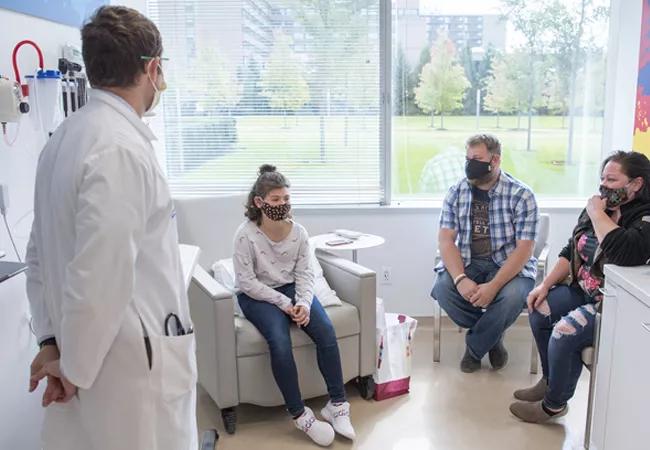Seth Rotz, MD, joins the Cancer Advances podcast to share insights

More children are surviving childhood cancers than ever before. Each year in the United States about 15,000 children are diagnosed with cancer, and about 80% to 85% will survive five years or longer.
Advertisement
Cleveland Clinic is a non-profit academic medical center. Advertising on our site helps support our mission. We do not endorse non-Cleveland Clinic products or services. Policy
While these numbers are encouraging, pediatric oncologists say a shift to better longer-term management of pediatric cancer survivors is warranted. The Childhood Cancer Survivorship Program at Cleveland Clinic Children’s is focused on doing just that.
Led by pediatric hematologist/oncologist Seth Rotz, MD, the physicians work with pediatric cancer survivors, their families, and other subspecialists as needed to identify risks and monitor late effects associated with disease and its treatment. They also provide counsel and resources related to other concerns, such as family planning and psychosocial issues.
Dr. Rotz joined the Cancer Advances podcast to discuss the goals of the program, the biggest issues in childhood cancer survivorship programs, and the next exciting thing in the field.
“Our focus in cancer survivorship has focused a great deal on the medical effects of having received chemotherapy and radiation. And, I think, in the last several years, there’s just been more attention focused on questions like: What are the long-term psychological impacts? What are the financial impacts of having had cancer? Does this impact whether a teenager ends up applying to college or not? Or does it put somebody in a position where they can’t change jobs because they’re worried about health insurance coverage and so forth,” he says.
“And then we have so many people and parents, too, who have some degree of post-traumatic stress from their treatment, and so we are trying to identify different mental health issues that can go along with treatment and get people plugged in with the resources they need, which is another very important part of what we do.”
Advertisement

Advertisement
Advertisement

First-of-its-kind research investigates the viability of standard screening to reduce the burden of late-stage cancer diagnoses

Global R&D efforts expanding first-line and relapse therapy options for patients

Study demonstrates ability to reduce patients’ reliance on phlebotomies to stabilize hematocrit levels

A case study on the value of access to novel therapies through clinical trials

Findings highlight an association between obesity and an increased incidence of moderate-severe disease

Cleveland Clinic Cancer Institute takes multi-faceted approach to increasing clinical trial access 23456

Key learnings from DESTINY trials

Overall survival in patients treated since 2008 is nearly 20% higher than in earlier patients